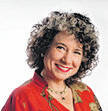
I hadn’t seen her in the nine years since we’d graduated from high school until I ran into her at a party in Brooklyn. Back in the 1980s, long before social media kept everybody posted about everybody else’s business, it was only through the chance collision of human beings that people discovered what their old classmates were doing. We’d actually been talking for a few minutes before she said, “Wait — are you Gina from Oceanside High School?” We’d been having a nice conversation, so I didn’t immediately scream and flee.
I should have, because she then said, “Didn’t you just say you’re getting a Ph.D.?” When I nodded, she followed up with, “With your SATs, how can you be in a graduate program?”
And that’s when I remembered who she was. She was the girl who knew everybody else’s GPAs and how everybody else did on their standardized tests.
It overwhelmed me, remembering how small and stupid I felt when compared to her, and the memories were all the more ghastly because of their triviality.
Fiddling with my wine, I explained that I was just starting the program and that I was studying British literature. “Oh, you were always good in English.” Satisfied that I didn’t step outside her limited expectations for me, she pivoted on her heels and began speaking to somebody else.
On the long subway ride back to Manhattan, I realized that this woman was still judging people by how well they did on one test taken during their senior year. In that arena, she’d been successful. And nine years later, I was still letting myself feel dumb in her presence because of it.
That night, in 1984, I asked my notebook, “Is there a way to stop torturing myself by other people’s definition of success?”
Thirty-seven years and I’m still asking the same question — but I have come to a few conclusions.
Success is first defined by our families, and those early ideas remain powerful.
True story: At 5, after watching an old musical about Broadway and imitating one of the stars, I announced “I wanna see my name up in lights!” Uncle Bill, without missing a beat, said, “Unless you change your name to ‘Vacancy,’ you’re not gonna see your name in lights.”
I grew up playing to a tough crowd. Even though I learned to be funny because it was the only way to survive, it came at a cost; funny always does. I learned to keep my ambitions to myself until I’d accomplished something.
But I learned to keep a firm hold on my ambitions nevertheless. I also learned how to embrace risk and cope with failure. We underestimate the significance of how to handle failure by encouraging people — especially young people — to avoid it, ignore it or dismiss it. Better to accept it, grapple with it and appreciate what it teaches.
You don’t stop failing, ever. You just become more adept at making use of it.
Life slaps down different challenges, and on some days merely getting out of bed and taking a shower are authentic victories. On other days, you can clean the house, make food for a sick neighbor, finish a project and feel like you’ve accomplished almost nothing because you know you could have done more. On both days, you should give yourself a break, as long as you recalibrate and keep going.
Outward measures — money, style and influence — are no guarantees of genuine success because they can be lost in stock market crashes, changes of fashion and changes in politics. You don’t carry success in your pockets or bank accounts, or on old sheepskins, or in the address books of the famous and fortunate. These can be erased as fast as the marks made by a No. 2 pencil.
Instead, while taking pleasure and pride from what you do well, understand that success, like love, changes over time. It deepens and grows calm. You’re not competing against somebody else’s idea of victory but internalizing the satisfactions of your achievements. This is why those who are genuinely successful in whatever they do understand that generosity is their real reward. Success is not something you hold onto: It’s something you pass along.


